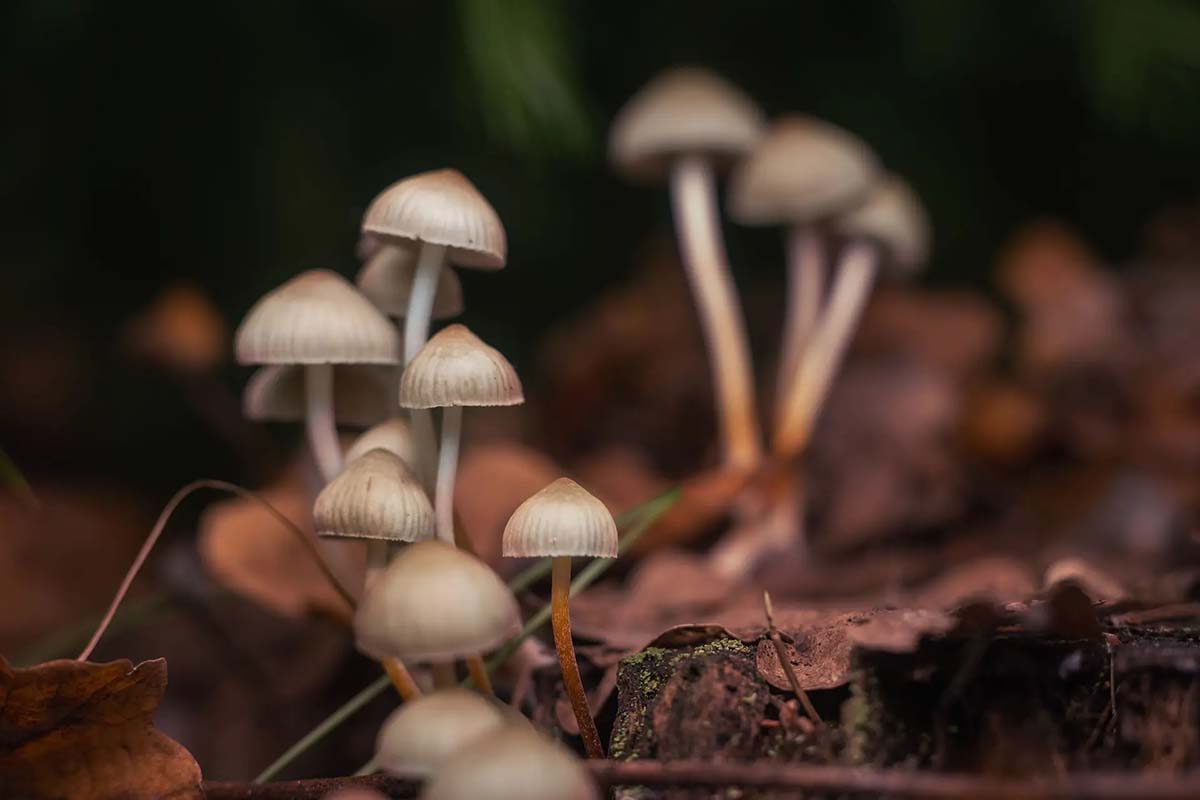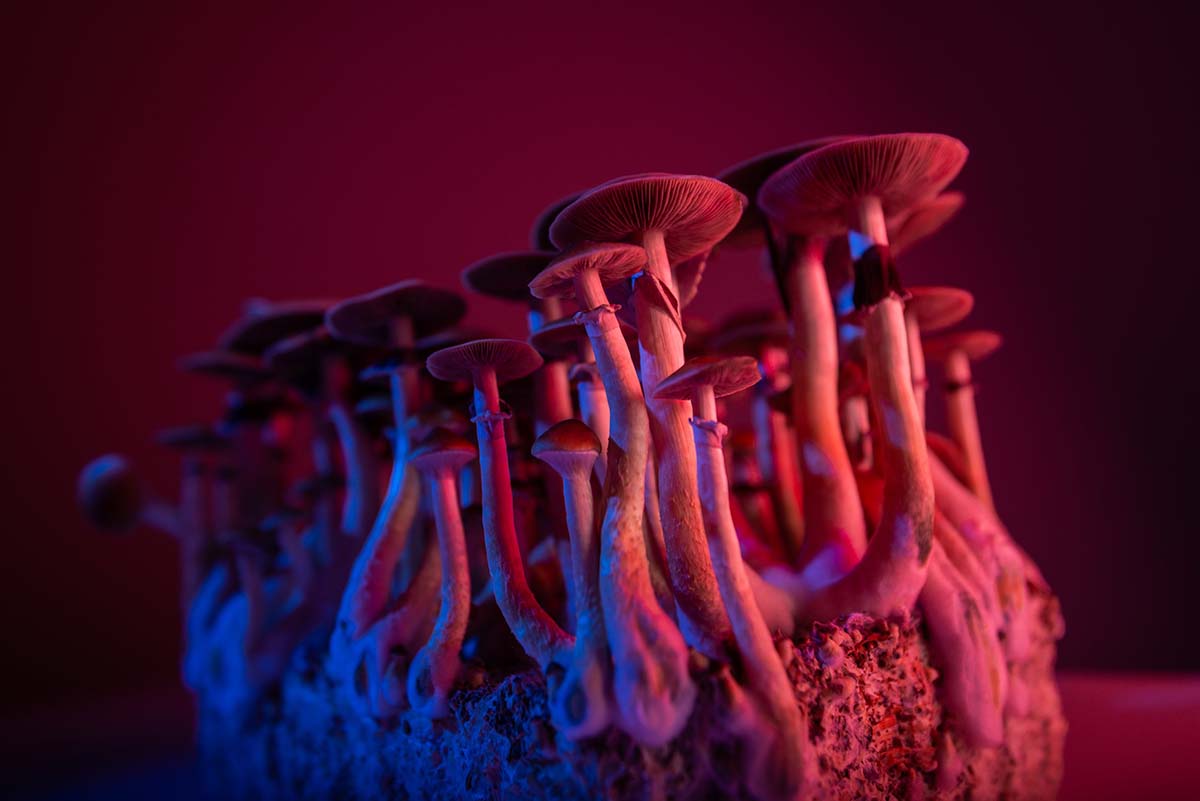Wellness Trends for 2025: A series of posts designed to uncover the most progressive concepts in wellness for the year ahead. Number Seven: Psychedelic Therapy Integration.
The world of mental health is on the cusp of a transformation, as psychedelics once associated with counterculture are emerging as promising tools for therapy. Research institutions, therapists, and wellness advocates are increasingly embracing psychedelics—not for recreational use, but as integrated therapeutic tools designed to address some of today’s most pressing mental health issues. Known as psychedelic therapy, this innovative approach uses substances like psilocybin, MDMA, and LSD under controlled settings to support healing, particularly for conditions that traditional methods struggle to treat.
This comprehensive guide explores the rise of psychedelic therapy integration, examining the science, therapeutic process, and potential benefits, as well as the ethical and legal considerations surrounding this new frontier in wellness.

The Psychedelic Renaissance: Why Now?
The renewed interest in psychedelic therapy is driven by several factors. First, mental health challenges are at an all-time high, with depression, anxiety, and PTSD affecting millions worldwide. Traditional treatment methods, such as antidepressants and talk therapy, are often beneficial but can fall short for many individuals, leading researchers to explore alternative approaches.
Studies conducted at leading institutions such as Johns Hopkins University and Imperial College London have shown promising results in the use of psychedelics for mental health. Findings suggest that psychedelics can produce a “reset” effect in the brain, helping individuals process traumatic experiences and fostering greater emotional resilience. In 2019, the U.S. Food and Drug Administration (FDA) designated psilocybin as a “breakthrough therapy” for depression, paving the way for accelerated research and approval.
How Psychedelic Therapy Works
Psychedelic therapy integrates psychoactive substances with therapeutic techniques to create a guided experience aimed at achieving mental breakthroughs or emotional release. The process typically involves three main stages: preparation, the psychedelic experience itself, and integration.
1. Preparation
The preparation phase is a crucial part of psychedelic therapy, setting the foundation for a meaningful experience. During this stage, therapists work with individuals to understand their intentions, set goals, and create a safe and comfortable environment for the session. Establishing trust and rapport is essential, as the therapeutic journey can be intense and deeply personal.
Preparation may also involve techniques like mindfulness training, journaling, or breathwork to help participants feel centered and ready. Participants are encouraged to focus on intentions for their experience, whether it’s processing trauma, reducing anxiety, or enhancing self-awareness.
2. The Psychedelic Experience
During the actual session, participants take a controlled dose of a psychedelic substance, such as psilocybin or MDMA, under the guidance of a trained therapist. The experience typically lasts several hours, with the therapist providing support and facilitating a safe journey. In some cases, therapists may use music, guided visualizations, or grounding techniques to help participants navigate their experiences.
Psychedelics work by temporarily altering brain function, particularly within the default mode network (DMN), a network associated with self-referential thought and rumination. By disrupting the DMN, psychedelics can help individuals view their lives from new perspectives, sometimes leading to emotional release or the processing of repressed memories.
3. Integration
The integration phase is where the insights gained during the psychedelic experience are applied to everyday life. This step involves working with a therapist to unpack and understand the emotions and realizations that surfaced during the session. Integration therapy may take place over several weeks or months, with practices like journaling, therapy sessions, and mindfulness exercises supporting the assimilation of new perspectives.
Integration is vital for achieving lasting benefits, as it bridges the gap between the psychedelic experience and real-world changes in behavior and mindset. Many therapists emphasize that, without integration, the experience itself may have limited therapeutic value, underscoring the need for continued support and reflection.

Psychedelics Commonly Used in Therapy
Several psychedelics are currently being researched and used in therapeutic settings, each with distinct effects and applications:
Psilocybin: Found in certain species of mushrooms, psilocybin is perhaps the most well-known psychedelic used in therapy. Studies have shown that psilocybin can reduce symptoms of depression, anxiety, and PTSD by inducing altered states of consciousness and promoting emotional release.
MDMA (Ecstasy): MDMA is currently being studied for its effectiveness in treating PTSD. Known for its empathogenic effects, MDMA helps reduce fear responses and increase feelings of trust and compassion, making it particularly useful in trauma therapy.
LSD (Lysergic Acid Diethylamide): LSD has a longer history of therapeutic use, dating back to the 1950s. While research into its therapeutic applications is still developing, some studies suggest LSD can support individuals in exploring self-identity and creativity, helping with issues like depression and anxiety.
Ayahuasca: Traditionally used by indigenous cultures in South America, ayahuasca is a plant-based psychedelic that has gained popularity for its purported healing properties. Although not legal in many countries, ayahuasca retreats offer structured, often spiritually guided experiences that some individuals seek for personal growth.

The Therapeutic Benefits of Psychedelic Integration
Psychedelic therapy offers potential benefits for individuals struggling with treatment-resistant mental health conditions. Here are some of the therapeutic advantages observed in studies:
Reduction in Depression and Anxiety
Psychedelic therapy has shown significant promise in alleviating symptoms of depression and anxiety, particularly in cases where conventional therapies have failed. By temporarily reducing activity in the default mode network, psychedelics can help individuals break out of negative thought patterns and view their circumstances from a new perspective.
Enhanced Emotional Processing
Many individuals find that psychedelics facilitate the release of repressed emotions, helping them process unresolved trauma. Studies show that MDMA-assisted therapy, for example, can help reduce PTSD symptoms by creating a safe emotional space for individuals to confront traumatic memories without fear.
Improved Mental Flexibility
Psychedelics can promote neuroplasticity, the brain’s ability to adapt and reorganize itself. Increased mental flexibility helps individuals become less rigid in their thinking, which can be especially beneficial for those with anxiety or obsessive-compulsive tendencies.
Fostering Connection and Empathy
Many participants report feelings of interconnectedness and empathy during psychedelic experiences. These effects can help individuals repair strained relationships and cultivate a sense of belonging, which is especially valuable for those who may feel isolated due to mental health struggles.
Long-Lasting Benefits
One of the most compelling aspects of psychedelic therapy is its potential for long-lasting change. Unlike traditional antidepressants, which must be taken daily, studies indicate that even a single psychedelic experience, when properly integrated, can produce effects that last for months or even years.
Ethical and Legal Considerations
While the therapeutic potential of psychedelics is promising, ethical and legal issues present significant challenges:
Safety and Supervision
Safety is paramount in psychedelic therapy. Without proper supervision, psychedelics can lead to adverse effects, particularly for individuals with a history of psychosis or schizophrenia. Trained professionals are essential for guiding participants through potentially challenging experiences and ensuring emotional and physical safety.
Legal Status and Accessibility
Despite growing acceptance in some countries, psychedelics remain illegal in many parts of the world. The legal landscape is changing, with several U.S. cities decriminalizing psychedelics and clinical trials underway, but widespread access is still limited.
Cultural Appropriation and Respect
Many psychedelics, such as ayahuasca and peyote, are traditional medicines with deep cultural significance. There is an ethical responsibility to respect indigenous practices and avoid commodifying these substances without honoring their cultural origins.
Accessibility and Affordability
As interest in psychedelic therapy grows, so does the need for affordable, accessible treatment. Currently, psychedelic therapy is often available only in expensive clinical settings or exclusive retreats, limiting access for many who could benefit.

The Future of Psychedelic Therapy Integration
The future of psychedelic therapy integration looks promising but requires careful development. Here are some trends likely to shape the future:
Regulatory Approval and Medicalization
With the FDA’s “breakthrough therapy” designation for psilocybin and MDMA, there is hope that regulatory approval will make psychedelic therapy more widely available. As clinical trials advance, psychedelics may become integrated into mainstream mental health care.
Training Programs for Therapists
Training professionals to administer psychedelic therapy safely is essential. Many institutions are now developing specialized programs to equip therapists with the skills needed to guide individuals through psychedelic experiences and provide effective integration support.
Expanded Research on Microdosing
While much of psychedelic therapy focuses on larger, guided doses, there is also interest in “microdosing,” or taking sub-perceptual doses of psychedelics. Research on microdosing suggests potential benefits for mood, creativity, and cognitive flexibility, but more studies are needed to validate these findings.
Integration into Holistic Wellness Programs
Some wellness centers are beginning to incorporate psychedelic integration as part of broader mental health programs. Combining psychedelics with practices like meditation, yoga, and psychotherapy could create a more comprehensive approach to healing.
A New Pathway to Healing
Psychedelic therapy integration is a revolutionary development in mental health and wellness, offering new hope for individuals struggling with conditions that traditional treatments cannot fully address. While challenges around legality and accessibility remain, the evidence supporting psychedelics as effective therapeutic tools continues to grow. As research progresses, the integration of psychedelics into mainstream mental health care could redefine our approach to healing, fostering not only symptom relief but also profound personal transformation.
This new pathway to healing emphasizes a holistic approach, one that goes beyond managing symptoms to addressing the underlying psychological and emotional factors of mental health conditions. By providing individuals with structured, supported experiences that encourage self-exploration and emotional release, psychedelic therapy holds the potential to reshape mental health care for the better. For many, it represents not just an alternative treatment but a path to lasting healing, resilience, and self-discovery.
As the therapeutic landscape evolves, psychedelic therapy may become a cornerstone of mental health support, empowering individuals to find renewed meaning and connection in their lives. The future of wellness, it seems, could very well lie in these carefully guided journeys within.








